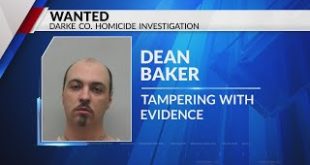Movington.com, CEO Dean Baker on a mountain in Las Vegas, NV. Dean is saying don’t take one of those online “quick cash sales” and under value your home. Give Movington.com a opportunity to get the most money for your home.
Read More »How to decimate the corporate tax-avoidance industry
from Dean Baker The Inflation Reduction Act includes a remarkable innovation. Share buybacks will be taxed at a 1% rate. This is a huge deal, not only because it taxes money that was often escaping taxation at the individual level, but it is a move away from basing the corporate income tax on profits, which can be easily manipulated, to taxing returns to shareholders. It is time for a major and simple overhaul of the corporate income tax system. The main problem with the current system is...
Read More »Tax stock buybacks?
from Peter Radford Taking a short break from my crusade to get information taken more seriously in economics … Yesterday’s Financial Times includes, on page 9 of the print edition, one of its regular “Market Insights” columns. This is the space the FT allocates to sundry financial market types to opine on subjects of general interest to other financial market types. It’s always a good read if you want to gain insight into how our magnificent financiers talk to themselves whilst...
Read More »How to Unf★ck CEO Pay
Dean Baker explains how CEO pay has increased enormously over the past four decades while shareholder returns have remained low. Weak corporate governance has allowed management to 'capture' corporate boards – and push through massive executive pay increases. Baker shows how in many cases their compensation has nothing to do with the return to shareholders. Baker breaks down the CEO pay scam into four parts: patterns of CEO pay, the alternative argument for CEO pay, evidence that CEOs...
Read More »Body found in shallow grave in Darke County, 2 suspects wanted
READ MORE: Two people are wanted by local authorities in connection to the death of a missing 30-year-old.
Read More »Science and crossword solving
from Lars Syll The model is not . . . how one determines the soundness or otherwise of a mathematical proof; it is, rather, how one determines the reasonableness or otherwise of entries in a crossword puzzle. . . . The crossword model permits pervasive mutual support, rather than, like the model of a mathematical proof, encouraging an essentially one-directional conception. . . . How reasonable one’s confidence is that a certain entry in a crossword is correct depends on: how much support...
Read More »Inflation: where are we now?
from Dean Baker With the United States data we have seen from the last few months, it’s fair to say that no one has a very good idea of where the economy is. At the most basic level, we have seen seven months of incredibly rapid job creation this year; the economy added 3.3 million jobs through July, along with two consecutive quarters of negative growth. We don’t have to join the Trumpers in calling this a recession, to be bothered by seeing two main economic indicators going in...
Read More »Econometrics — the danger of calling your pet cat dog
from Lars Syll The assumption of additivity and linearity means that the outcome variable is, in reality, linearly related to any predictors … and that if you have several predictors then their combined effect is best described by adding their effects together … This assumption is the most important because if it is not true then even if all other assumptions are met, your model is invalid because you have described it incorrectly. It’s a bit like calling your pet cat a dog: you can try...
Read More »Say it ain’t so
from Peter Radford re-visiting economics’ basic concepts I am nothing if not annoying. Allow me to elaborate. Let’s be basic. I mean really really basic. Our model world initially consists of two people, Adam and Eve. I know, it’s been done before. But we are economists. What are we interested in? What problems that Adam and Eve face do we want to study? Well, they need energy. Human bodies, like all ordered structures, need flows of energy to maintain that structure. The Second...
Read More »Jürgen Habermas and Hans Albert on the weaknesses of mainstream economics
from Lars Syll The weaknesses of social-scientific normativism are obvious. The basic assumptions refer to idealized action under pure maxims; no empirically substantive lawlike hypotheses can be derived from them. Either it is a question of analytic statements recast in deductive form or the conditions under which the hypotheses derived could be definitively falsified are excluded under ceteris paribus stipulations. Despite their reference to reality, the laws stated by pure economics...
Read More » Real-World Economics Review
Real-World Economics Review






